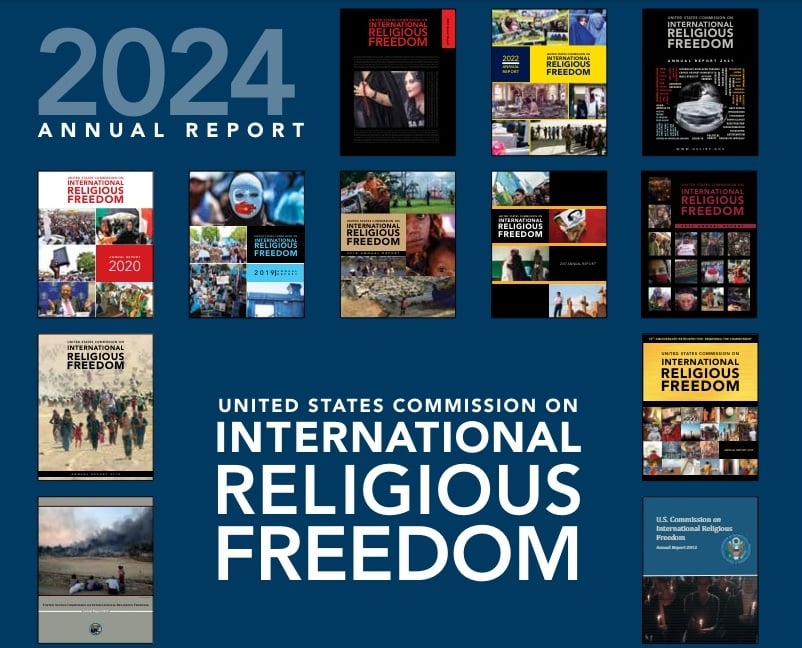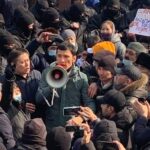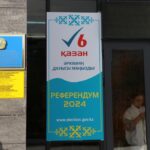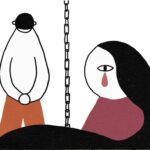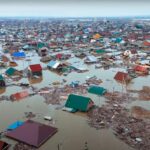Established under the International Religious Freedoms Act, the United States Commission on International Religious Freedom (USCIRF) is an independent, bipartisan advisory body separate from the State Department. It monitors religious freedom globally, recommending policy actions to the president, secretary of state, and Congress based on international standards. The report bases its recommendations on the provisions and standards in the Universal Declaration of Human Rights, the International Covenant on Civil and Political Rights, and other international documents. Its 2024 Annual Report assesses religious freedom violations and progress in 28 countries during 2023, offering independent policy recommendations.
This year, the United States Commission on International Religious Freedom (USCIRF) has recommended that Kazakhstan be placed on the Special Watch List (SWL). A designation they were previously not listed on, and included countries such as Algeria, Azerbaijan, Comoros, and a few others. SWL designations are reserved for nations where governmental actions or tolerance levels indicate “severe” violations of religious freedom. The report highlights that despite ongoing governmental efforts, religious freedom conditions in Kazakhstan did not see improvement, with authorities persisting in restricting the activities of various religious groups and imposing penalties on individuals affiliated with non-traditional denominations. Notably, the report documents over 160 instances of administrative fines levied against individuals engaged in peaceful religious practices throughout the year.
Background
Under its constitutions, Kazakhstan is characterized as a secular state, while recognizing Hanafi Sunni Islam and Russian Orthodox Christian as traditional to Kazakhstan. As of 2021, more than 69% of Kazakhs adhere to Islam. Other, smaller religious groups include Chrisitan, Jews, Baha’is, Buddhists, Scientologists, and others. These smaller groups are characterized as ‘nontraditional’; nontraditional groups are more likely to be targeted by authorities.
According to a 2011 religion law, only registered religious associations may request to hold religious activities outside their registered place of worship. Groups that have attempted to engage in nonregistered religious activities have faced fines. Individuals were also penalized for attempting to import and distribute religious texts without state authorization.
Furthermore, there are current limitations on religious attire. Since 2014, a ministry of education decree has prohibited religious clothing in schools, a policy that remains in effect. Instances have been reported of students being expelled for wearing the hijab, despite indications that over 13,000 girls desire to do so. This issue underscores the government’s response to perceived rising extremism, which they associate with the growing presence of religious attire among young people.
Key Findings
A USCIRF delegation confirmed ongoing violations of Article 18 of the Universal Declaration of Human Rights by Kazakh authorities. Peaceful religious activities face penalties, including fines and imprisonment. Government surveillance and intimidation instill fear, leading some groups to avoid registration to evade scrutiny. For instance, in May 2023, a Jehova’s Witness, Daniil Smal was forcibly recruited for conscription despite his objection on religious grounds. Eventually Smal filed an administrative claim to the Military Court, and after a few months in detention he was released.
Moreover, seven Muslim individuals are currently imprisoned for peaceful online expression. An instance of authority intimidation includes the case of Zhandos Saduakasov, a miner from the Karaganda region known for his civic activism, recently engaged in politics by running for the maslikhat of Saran. His defeat in the elections led him to challenge the results due to irregularities, including ballot stuffing. However, the government now accuses him of building on state-owned land, pressuring him to remove critical content online. Despite assurances of non-interference, Saduakasov fears losing the mosque and struggles to pay fines.
Of particular concern, Kazakh activists who oppose the genocide of Uyghurs and other ethnic Turkic Muslims in China are also harshly restricted. Their peaceful protests and activism are harshly oppressed, through detainment and intimidation from Kazakh and Chinese authorities. Uyghurs are particularly vulnerable, many living in a legal limbo between refugee status and requesting to obtain citizenship.
Finally, in October 2023, the Prime Minister raised potential reforms including restrictions on religious head coverings in public, regulation of distribution of religious materials, and more.
Recommendations
Given these findings, the USCIRF recommends to the US government to place Kazakhstan on the SWL. It calls for further engagement with Kazakhstan to revise the 2011 religion law and other legislations to comply with international human rights standards. Particularly, releasing the prisoners, amending registrations requirements, and removing administrative fines for religious activities.
Full report: 2024 Annual Report.pdf (uscirf.gov)


